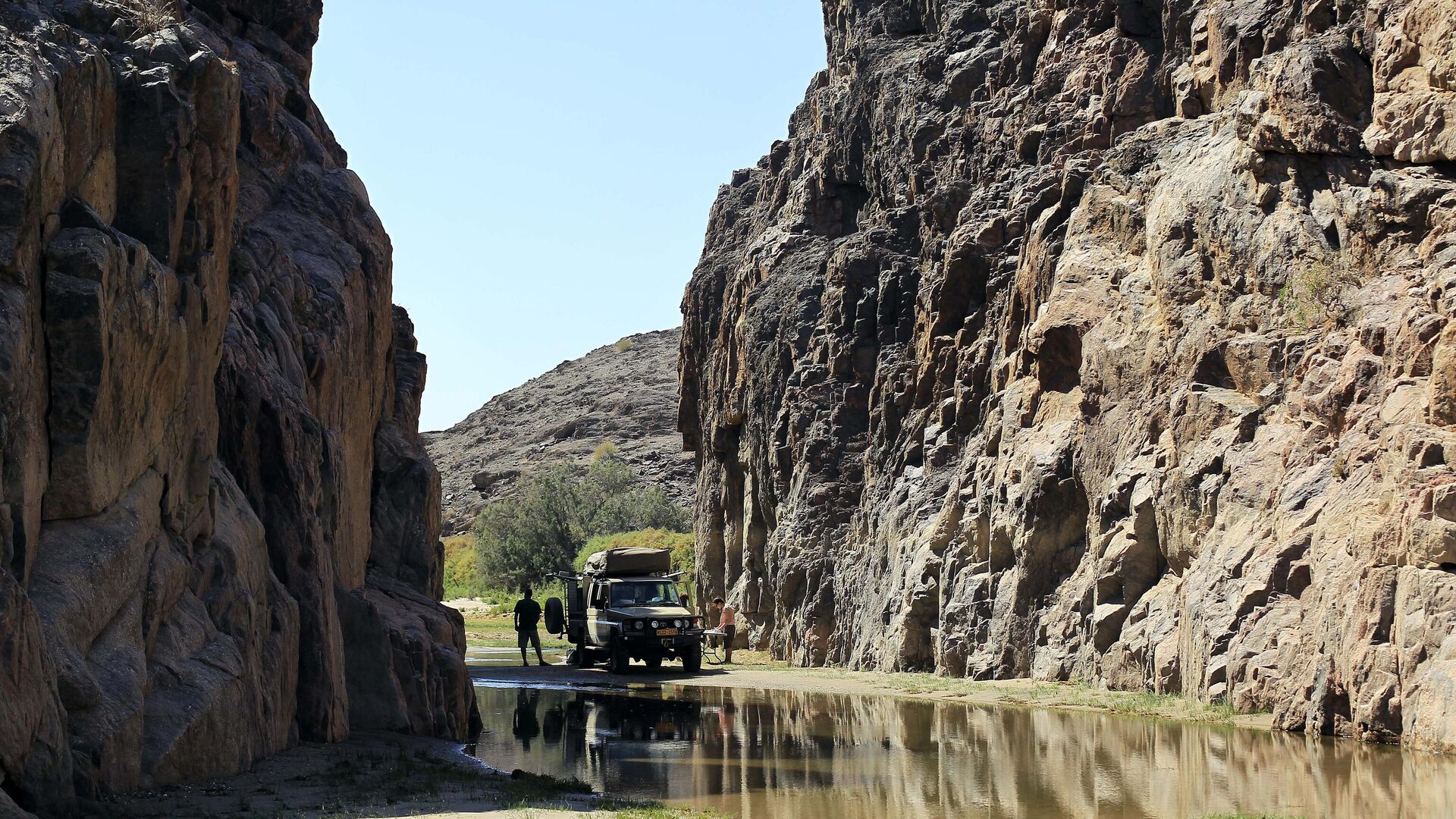https://en.sputniknews.africa/20240627/namibia-set-to-launch-major-desalination-project-in-2025-to-tackle-effects-of-drought-1067262675.html
Namibia Set to Launch Major Desalination Project in 2025 to Tackle Effects of Drought
Namibia Set to Launch Major Desalination Project in 2025 to Tackle Effects of Drought
Sputnik Africa
In May, President Nangolo Mbumba declared a national state of emergency in 14 regions due to the unprecedented drought conditions. The country experienced... 27.06.2024, Sputnik Africa
2024-06-27T17:01+0200
2024-06-27T17:01+0200
2024-06-27T18:00+0200
namibia
southern africa
sub-saharan africa
nangolo mbumba
water security
water resources
water desalination
climate
climate change
weather
https://cdn1.img.sputniknews.africa/img/07e8/06/1b/1067262834_0:320:3072:2048_1920x0_80_0_0_5ba6365a19a8258068281058885422d7.jpg
In January 2025, Namibia's second desalination plant will commence construction, according to Calle Schlettwein, the Minister of Agriculture, Water, and Land Reform, as the country is currently experiencing its most severe drought in over a century.The project, which was initially proposed in 1998 and would have a capacity of more than 20 million cubic meters, has been approved and is expected to be operational by early 2027. Namibia's need for water has grown since it produces 11% of the world's uranium, making it the third-largest producer; moreover, exploration and uranium industry acquisitions are expanding in the country.To meet their water needs, miners in the Erongo region, between Swakopmund and Walvis Bay, have historically relied on two groundwater aquifers and the Orano Desalination Plant, which opened in 2010. However, with somewhat more than 30 million cubic meters per year, these sources are almost at their limit.Despite predictions of 3.7% economic growth in 2024, the central bank warns that the ongoing drought and water supply issues pose significant risks.
namibia
southern africa
Sputnik Africa
feedback@sputniknews.com
+74956456601
MIA „Rossiya Segodnya“
2024
News
en_EN
Sputnik Africa
feedback@sputniknews.com
+74956456601
MIA „Rossiya Segodnya“
Sputnik Africa
feedback@sputniknews.com
+74956456601
MIA „Rossiya Segodnya“
namibia, southern africa, nangolo mbumba, water security, water resources, water desalination, climate, climate change, weather, economy, drought
namibia, southern africa, nangolo mbumba, water security, water resources, water desalination, climate, climate change, weather, economy, drought
Namibia Set to Launch Major Desalination Project in 2025 to Tackle Effects of Drought
17:01 27.06.2024 (Updated: 18:00 27.06.2024) In May, President Nangolo Mbumba declared a national state of emergency in 14 regions due to the unprecedented drought conditions. The country experienced record-low agricultural production and nearly 100,000 livestock fatalities during the latest drought in 2019.
In January 2025, Namibia's second desalination plant will commence construction,
according to Calle Schlettwein, the Minister of Agriculture, Water, and Land Reform, as the country is currently experiencing its most severe drought in over a century.
The project, which was initially proposed in 1998 and would have a capacity of more than 20 million cubic meters, has been approved and is expected to be operational by early 2027.
Namibia's need for water has grown since it produces 11% of the world's uranium, making it the third-largest producer; moreover,
exploration and uranium industry acquisitions are expanding in the country.
To meet their
water needs, miners in the Erongo region, between Swakopmund and Walvis Bay, have historically relied on two groundwater aquifers and the Orano Desalination Plant, which opened in 2010. However, with somewhat more than 30 million cubic meters per year, these sources are almost at their limit.
"Our ambitious development plans, increased mining activities, industrial demand, agriculture, and food production have pushed projected demand beyond what these sources can deliver," Schlettwein stated.
Despite
predictions of 3.7% economic growth in 2024, the central bank warns that the
ongoing drought and water supply issues pose significant risks.

